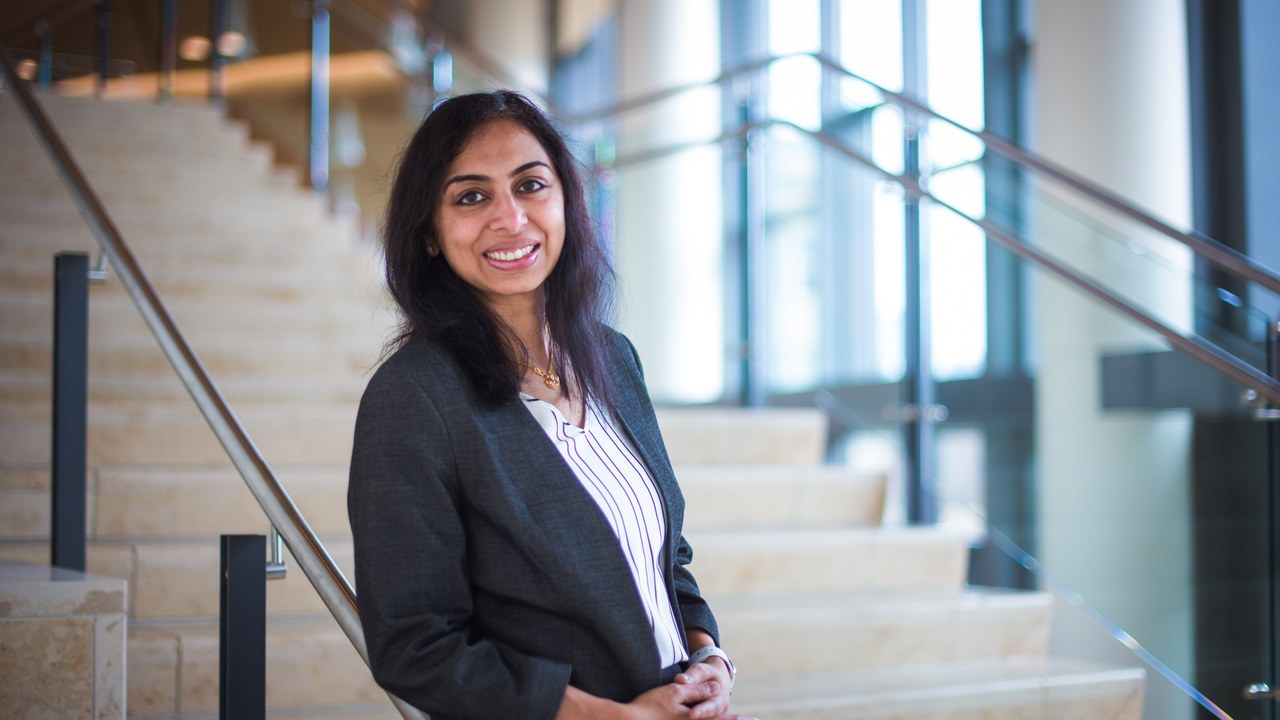Next-generation targeting has organelle-level precision
DIPC Seminars
- Speaker
-
Yamuna Krishnan
Department of Chemistry & Grossman Institute of Neuroscience, Quantitative Biology and Human Behavior, The University of Chicago - When
-
2025/10/17
11:30 - Place
- DIPC Josebe Olarra Auditorium
- Host
- DIPC, The Gipuzkoa Provincial Council.
- Add to calendar
-
iCal

The Women and Science program, launched in 2021 by the Gipuzkoa Provincial Council and DIPC, aims to promote the visibility and presence of women of excellence in science. This initiative aligns with DIPC’s mission and the Council’s commitment to advancing gender equality in all areas, particularly in those where inequality is most pronounced.
As part of this initiative, DIPC and the Gipuzkoa Provincial Council have organised a seminar featuring Professor Yamuna Krishnan, who will deliver a talk entitled “Next-generation targeting has organelle-level precision”. Her talk will be followed by dialogue/interview moderated by Professor Luca Salassa, Ikerbasque Research Professor at DIPC.
Abstract of the talk:
Intracellular organelles are relatively autonomous sub-systems within the cell, whose activity and chemical composition reflect the cell’s metabolic state. Metabolism is altered in diseased or aging cells this is reflected at the level of specific organelles within them. Often, introducing compensatory changes in organelles can restore cells to normalcy given the intrinsic feedback between cells and their organelles.
Nature already targets the delivery of exogenous cargo with organelle-level precision in living organisms as evidenced by invading pathogens as well as endogenous signaling molecules. DNA can be self-assembled into molecularly precise, well-defined, synthetic assemblies on the nanoscale, commonly referred to as designer DNA nanodevices. Over the last decade, my lab developed a way to target DNA nanodevices to specific cells in vivo, but with organelle-level precision.
Our first discovery in 2011 revealed that DNA nanodevices could reach organelles called lysosomes specific cells of live nematodes, where it functioned as a reporter of pH. (1-2) Until this innovation, it was not at all obvious whether such DNA nanodevices could function inside a living cell without being interfered with, or interfering with, the cells own networks of DNA control. We spent 10 years studying the environment within lysosomes.
I will discuss how we use the lysosome as a portal to control cell state, flip the cell “from baddie to goodie” and turn cold tumors hot in mice.
About the speaker
Prof. Yamuna Krishnan is The Louis Block Professor of Chemistry and the College at the University of Chicago. She has pioneered the interface between DNA nanotechnology and cell biology. Her lab has developed a versatile chemical imaging technology to quantitatively image second messengers in real time, in living cells and genetic model organisms. While her lab is engaged in basic biology - discovering new organellar channels and transporters – she has co-founded two companies – Esya Inc & Macrologic Inc, that utilize her organelle-targeting technology for diagnostics and therapeutics respectively. She is a recipient of the NIH Director’s Pioneer Award, the Ono Pharma Breakthrough Science Award, the Infosys Prize for Physical Sciences, Shanti Swarup Bhatnagar Prize in the Chemical Sciences and the Sun Pharma Foundation Award for Basic Medical Research. She is a fellow of the American Association for the Advancement of Science, featured on LSDP’s top 100 global thinkers (2014), and Cell’s 40 under 40 list of scientists shaping current and future trends in biology.
Prof. Luca Salassa earned his Ph.D. from the University of Turin (Italy) in 2004. He pursued postdoctoral research at the University of Montana (USA) and the University of Warwick (UK, MSCA fellow). In 2012, he was awarded a Ramón y Cajal fellowship at CIC biomaGUNE (San Sebastián, Spain) to start his independent career. Since 2017, he is Ikerbasque Professor at the Donostia International Physics Center, leading research on photochemical activation of biologically relevant metal complexes for anticancer and antipathogenic applications.
He has authored 115 publications, three patents, and his work has been cited over 5800 times (h-index 41). He has delivered more than 85 lectures worldwide and supervised 10 Ph.D. theses (6 ongoing) and 7 postdoctoral fellows (including MSCA-IF, Juan de la Cierva, and La Caixa grantees). Luca was Visiting Professor at the Universities of Palermo (2014, 2023), Padua (2017), and Turin (2019), and currently serves as the President of the board of the Spanish Association of Bioinorganic Chemistry (AEBIN).
